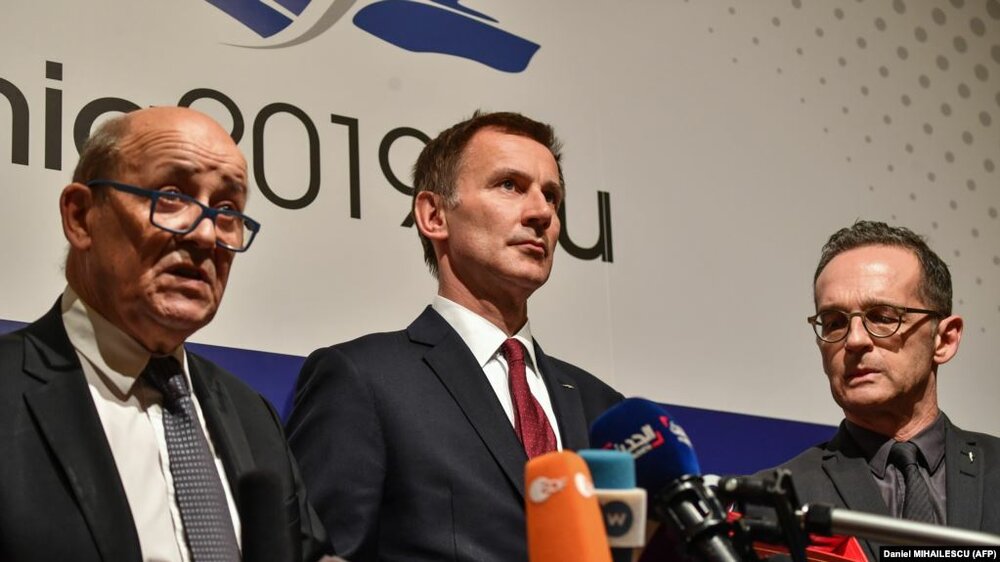Britain, France and Germany would intensify diplomacy to keep nuclear deal: Reuters

Britain, France and Germany plan a new push to keep Iran in the 2015 nuclear deal and would intensify diplomacy in the coming days.
“Diplomats said the E3, which began talking to Iran about curtailing its nuclear program in 2003, would intensify its diplomacy in the coming days, including with talks among the E3 and EU political directors in Brussels on Thursday,” Reuters reported.
The British, French and German foreign ministers could visit Tehran for talks about the deal, though that is just an option for now.
And three diplomats said the Joint Commission set up under the nuclear deal could meet within the two weeks. With the U.S. withdrawal, those talks would bring together officials from Britain, China, France, Germany, Iran, Russia and the European Union.
After a year since the U.S. quit the nuclear deal and reimposed sanctions including oil embargo, Iran announced on May 8 that its “strategic patience” is over and partially removed limits on its nuclear activities.
In line with the decision, the Atomic Energy Organization of Iran (AEOI) announced on Monday that Iran’s stockpile of enriched uranium will exceed 300 kilograms by June 27.
“From today the countdown has started and it means that by Tir 6 (June 27) the production of enriched uranium will exceed the 300 kilograms,” AEOI spokesman Behrouz Kamalvandi told reporters at the site of the Arak heavy nuclear reactor.
On May 8, the Supreme National Security Council (SNSC) issued a statement declaring if the remaining parties to the JCPOA make an agreement within 60 days to offset U.S. sanctions, Iran will reverse its decision.
Kamalvandi insisted on this point on Monday.
Iran has threatened if a decision is not made by that date it will take the next steps.
After June 27, Kamalvandi said, Iran will speed up its uranium enrichment activities beyond 3.67 percent if the other sides don’t take a practical step.
“After surpassing 300 kilogram, we will increase the speed of producing enriched uranium above 3.67 percent,” Kamalvandi stated.
Under the JCPOA, Iran agreed to put caps on its nuclear work in exchange for termination of economic and financial sanctions. However, Trump unilaterally pulled Washington out of the nuclear deal in May 2018 and ordered reimposition of sanctions against Iran. The first round of sanctions went into force on August 6 and the second round, which targets Iran’s oil exports and banks, were snapped back on November 4.
Also, on April 22 the U.S. announced that Washington has decided not to extend waivers allowing major importers to continue buying oil from Iran. The waivers ended on May 2.
French President Emmanuel Macron said on Monday that he regretted Iran's announcement that it would exceed the limit of uranium enrichment set under the 2015 nuclear deal, Euronews reported..
He added that Paris would still hold talks with Tehran and its partners to save the nuclear deal, officially called the Joint Comprehensive Plan of Action (JCPOA).
"I regret the Iranian announcements made today, but as the IAEA (International Atomic Energy Agency) has underlined, Iran is respecting its commitments and we strongly encourage it to be patient and responsible," Macron told a news conference with Ukrainian President Volodymyr Zelensky.
Macron said there was still a window between now and July 8 to save the nuclear deal.
"All forms of escalation do not go in the right direction and won't help Iran itself and the international community so we will do all we can with our partners to dissuade Iran and find a path to a possible path for dialogue," Macron said.
NA/PA
Leave a Comment